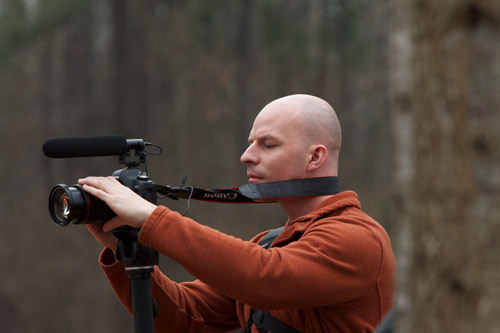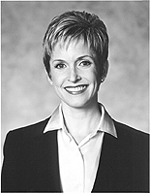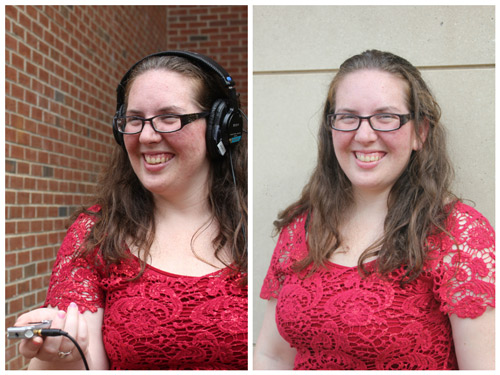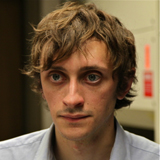The Connection October 2013
The Connection is the newsletter of the Science and Medical Journalism Program at the University of North Carolina at Chapel Hill's Hussman School of Journalism and Media.
Recent med/sci master's alumnus writes for Scientific American
By Daniel Lane
 Patrick Mustain, a 2013 graduate of the UNC science and medical journalism program, is a man with questions.
Patrick Mustain, a 2013 graduate of the UNC science and medical journalism program, is a man with questions.
"Can we really develop a sustainable seafood system? How do you make the perfect pancetta? Why on earth should anyone ever eat anything that Doctor Oz endorses?"
Now, Mustain is contributing posts to a site where he (and we) can explore the answers, the Food Matters Blog Network at the Scientific American website. Mustain and six other writers are covering food topics ranging from advertising, to agriculture, to public health, to tasty recipes. When he’s not blogging for the Scientific American, Mustain works full time as a communications manager for the Rudd Center for Food Policy and Obesity at Yale University.
With master's degrees in both journalism and public health, Mustain said he will cover food from a public health perspective.
"I'll be writing about food through my public health lens, especially how the media environment and marketing affect our eating habits, and therefore, our health," he said.
Mustain cut his teeth at Scientific American with a piece he wrote for his Science and Medical Journalism class at UNC. The piece — "Dear American Consumers: Please Don’t Start Eating Healthfully. Sincerely, the Food Industry" — is a satirical letter written from the food industry, presenting proposed advertising regulations on children’s food and the costs of obesity. That post, which debuted on the Scientific American Guest Blog, was one of the most viewed articles the guest blog ever had.
Mustain said the Food Matters writers all bring something different to the table.
"One of the great things about this new SciAm gig is that we're given a lot of freedom about what we're writing," he said.
Mustain posts at Food Matters once or twice per month. His latest piece tells readers his "one weird trick" to help lose pounds. Check out the report on the SciAm website.
A conversation with... Helen Chickering
 Helen Chickering is a former medical reporter for NBC News Channel and a member of the UNC science and medical journalism advisory board. Her reports were broadcast on more than 200 NBC affiliates around the country. She has covered health issues since 1985 and was a past president of the National Association of Medical Communicators. She now works as a freelance reporter/producer and science communication educator in Asheville, N.C. Recently she spoke with second-year master’s student Dan Lane. The following is a condensed version of that conversation.
Helen Chickering is a former medical reporter for NBC News Channel and a member of the UNC science and medical journalism advisory board. Her reports were broadcast on more than 200 NBC affiliates around the country. She has covered health issues since 1985 and was a past president of the National Association of Medical Communicators. She now works as a freelance reporter/producer and science communication educator in Asheville, N.C. Recently she spoke with second-year master’s student Dan Lane. The following is a condensed version of that conversation.
Q: How did you get started in medical journalism?
A: My first job was at a small NBC affiliate in Jackson Miss., WLBT. I did weekend weather and was an assignment reporter and fill-in anchor. I was handed, in 1986 or 1987, a health and science reporting beat. That was when beats like environment or health were just being tested in television stations. Nobody wanted it so I was literally handed the beat.
What struck me right away about that beat was that there were really no set rules. That is, if you were covering the legislature, you knew how to do reporting and how to check your facts and there were all kinds of people in the newsroom who could help you. But with health reporting I was on my own. So I felt like a fish out of water, and science had really intimidated me in school so it was doubly intimidating.
Q: What drove you to stay in medical reporting?
A: I really liked the beat, but I realized that I had no idea what I was doing. The American Medical Association put on a health communications conference. I got a scholarship and attended. I was probably one of the few reporters. I did an hour-long, one-on-one critique session. It was great, some of the best feedback I had gotten. "Where were your sources? Did you read a study?" I was just like "Holy smoke."
I remember leaving that critique session thinking, "I've found what I want to do." That hour really changed my life. I started going to every workshop I could and reading everything I could so I could learn as much as I could.
Q: What was your experience at NBC News like?
A: That was a whole different world in many different ways. I was called in to create the health desk. What was shocking was that New York had all these resources, and we started from the ground ... Network life was not at all what I thought it would be.
I had this vision of "I'm working with the network and I’m going to have all these resources, and I'll get to cover the big stories." I did get to cover the big stories, but when you're not right at 30 Rock, it's like being in local news with a few more toys, but not much. But I got to cover stories I never would have gotten to cover.
I learned so much about balanced coverage and really sharpened my deadline skills. You really get a sense of the impact you can have when a story goes out. You get calls from the American Medical Association or the British Medical Journal and you learn more than ever that you have to really get it right.
Q: Do you have any tips for young journalists on how to report balanced stories that also reflect the scientific data?
A: The analogy that first comes to mind is a story I did on animal research. There was a proposal that some shelter dogs might be used for animal research. It was never clear exactly what. But there was science, and there was a huge protest about unfair treatment of animals. So I worked really hard to give each side equal time, 30 seconds here, 30 seconds here and I clocked it.
What I didn’t realize was that I was talking about dogs being used in cardiac research, and the video I used was cute dogs. So even though the time was fair, you see those pictures and you're toast. So I've learned to be really careful about my video.
If you're going to point a finger and say, "You’re the bad guy," that's investigative. That's a different type of reporting. But if you're going to fairly report a situation you can't side with anyone. You have to be careful about your video, about the sound bites you use.
If you're doing the story about vaccines and autism, and you interview the scientist who says, "We see no connection between autism and vaccines," and on the other side, you have the parent group and the child for whom everything was fine until he got that vaccine. That's really not balanced, that's not the other side. The other side is any study you can find that might show otherwise.
Even if the study proves otherwise, we are there to present facts, and the facts will trigger the change. It's really hard when you're covering the environment or children. Health and science really lend themselves to those kinds of topics. And here's the challenge, the interesting sound bites are the one where they’re emotive, but it may be totally shaping the story or off or out of context. The hardest part is giving up that beautiful bite because it turns your piece into an editorial.
Q: So what do you do now?
A: I do a lot of workshops and talks now with scientists about communicating to the general public without losing the integrity of their research.
My new passion is helping people find other ways to communicate because writing out an elevator speech doesn't work for everyone. I also want to find other ways for scientists and science communicators to practice. It’s called the Practice Room Project, and it's in the works right now. Basically the dream is to find ways to use Skype or the Internet or other methods ... to meet a group of other scientists and practice your speeches together.
I think that's what we need now. There are lots of great programs where you can learn techniques for science communication but you go back home or back to your lab and you don't practice it.
It's like speaking Spanish. The lay public speaks a different language, and we just need to practice it. It's easy to say that the public is dumb because they don't get it, and scientists are just stuffy and bad communicators. No. Not really. Not at all. We just speak different languages, and we just haven't taken the time to learn each others' language. That's why I think we just need to take the time to practice those skills.
Update from second-year master's student Courtni Kopietz
 For students summer can include a break from classes, but it is also a chance to gain experience for future careers. I was fortunate enough to gain experiences from two, very different internships last summer.
For students summer can include a break from classes, but it is also a chance to gain experience for future careers. I was fortunate enough to gain experiences from two, very different internships last summer.
I first worked as a multimedia reporter at stemwire.org, a digital publication produced through UNC's Reese News Lab. The lab wanted to further the conversation about STEM — science, technology, engineering and math — education by engaging audiences in new ways. I was part of a four-person staff and expanded my skill set working as editor, reporter, videographer and photographer.
Here are some of the articles that I worked on:
- "Science of baseball: STEM at the College World Series"
- "Barrier Island workshop helps teachers combine history and STEM"
- "NC ‘STEM for Kids’ camp promotes 21st-century skills"
Beyond reporting stories, my colleagues and I established a network of sources and readers through social media, primarily Twitter. We engaged a community of educators, students, parents and education policymakers in conversation while distributing relevant news about STEM education.
In the second half of my summer I worked at the NC Foundation for Advanced Health Programs, where I still work. At the foundation I handled internal communications, including writing content for a new website, establishing a social media presence through Facebook and Twitter, and documenting activities through photo and video. I am also starting a quarterly newsletter reporting on activities of the foundation and promoting the organization's work to local news media.
My work outside the school and my classes at UNC have made me aware of the several paths I could take in science and medical journalism.
Update from second-year master's student Daniel Lane: A summer at UNC-TV
By Daniel Lane
 To be able to play an active role in a new reporting project is lucky. When your co-workers on that project are amazing educators and storytellers with a passion for science, that is amazing. I spent my summer at North Carolina Public Television (UNC-TV) working on several projects dedicated to reporting on and educating the public about science.
To be able to play an active role in a new reporting project is lucky. When your co-workers on that project are amazing educators and storytellers with a passion for science, that is amazing. I spent my summer at North Carolina Public Television (UNC-TV) working on several projects dedicated to reporting on and educating the public about science.
UNC-TV contributes to QUEST a national program based at KQED in San Francisco, dedicated to the science of sustainability. QUEST's six public broadcasting partners produce online articles and videos about sustainable technology and new ways to reduce human impacts on the environment. QUEST is also broadcasting a weekly television series on PBS this October and November.
I was able to contribute a web article to QUEST about a simple, cheap method of detecting E. coli bacteria in water supplies. With the help of UNC-TV's David Huppert, this story taught me to prominently feature human interest points in science stories and to tighten my copy.
In addition to its partnership with Quest, UNC-TV is producing its own science stories for broadcast throughout the state. Thanks to a grant from Glaxo Smith Kline, UNC-TV has started the series Science NOW. Science NOW has a broadcast component, where every Wednesday evening producer/reporter Frank Graff reports on a science story for North Carolina Now. I went on a few shoots with Frank and got to see how broadcast professionals work under deadline pressure to gather interviews and video for their stories.
Science NOW also has an educational component, geared for middle and high school students. As part of that initiative, I helped edit stories about how scientists found their fields of study and also mapped out infographics with our education expert, Lucy Lafitte.
Most of my work, though, was geared toward writing for UNC-TV's science website. I took advantage of the storytelling expertise of my colleagues and had the freedom to cover what I found relevant. In the process I honed my writing by covering stories I was passionate about.
I also focused a lot on the Week In Review Blog, a digest of science stories from North Carolina universities and research institutions. Writing brief reports forced me to drill down to the most relevant points and put them in perspective in a short space.
I also pursued a few longer stories that I found important or fun. After a particularly deadly Fourth of July weekend in North Carolina, I wrote a story on rip currents. Then in August, I reported on the discovery of the olinguito, a fun story to tell.
For the fall 2013 semester I’ve continued to work part-time at UNC-TV as I look for new stories and polish my writing.